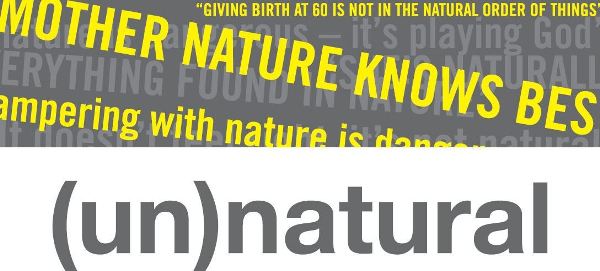
Doin’ what comes natur’lly
Nuffield Council on Bioethics releases report on “naturalness”
A new medical technology encounters the most resistance when Joe Bloggs thinks it is “unnatural”. If you nailed a placard to a door with the words “plague within”, politicians could not run away fast enough. So the approval of challenging new technologies often depends on reframing the debate either to make them appear natural or to whisk the word away.
After decades of experience with debates about the “naturalness” of IVF, mitochondrial donation, homosexuality, hybrid embryos, GM foods, animal experimentation, cloning, surrogacy, gamete donation and so on, the UK’s Nuffield Council on Bioethics has taken the bull by the horns and written a position paper on “naturalness”. (Summary here. Full report here.) The council is independent but has a history of influencing bioethics policy in the UK.
Since the philosophical debate over naturalness is at least 2,400 years old, a committee of British panjandrums is unlikely to come up with new ideas, but it could give the government an arsenal of arguments to justify controversial policies.
The idea of naturalness is never far from the centre of bioethical discourse. “How dare you refer to my beautiful children as ‘synthetic’?” tweeted Elton John in March 2015 in an argument with Dolce and Gabbana. Bishop Keenan of Paisley argued that a technique to prevent mitochondrial DNA disorders “distorts the natural process of fertility” when it was being debated in Parliament in February.
As the Council’s report points out, the word is susceptible to many interpretations and often people talk at cross purposes.
The report sets out five understandings of naturalness that show the different ways in which the terms “natural” and “unnatural” are used:
Neutral: a neutral/sceptical view that does not equate naturalness with goodness.
Wisdom of nature: the idea that nature has found the correct or best ways of doing things and should not be “tampered” with.
Natural purpose: the idea that living things have natural purpose, essence or functions which is linked to what is good for them and which science shouldn’t seek to change.
Disgust and monstrosity: a response of disgust, revulsion or fear prompted by novel technologies.
God and religion: the idea that certain technologies distort God’s creation or go against the will of God.
“It is too simplistic to suggest that natural things are good and unnatural things are bad, yet we see many examples of this being implied through the media, in advertising and on the packaging of many products we buy. Our findings show that people use the terms nature, natural and unnatural to express a range of values, beliefs, hopes and fears,” said Roland Jackson, the chair of the naturalness project.
Amongst the recommendations made by the committee is some finger-wagging at journalists, politicians, policy-makers, manufacturers and advertisers to mind their language.
Tom Shakespeare, member of the Council’s Steering Group, said: “The use of these words by journalists, politicians and others to convey a good or bad view of science is lazy and clichéd. People often have genuine concerns, beliefs and values which should be answered, not just dismissed. Everyone involved in key debates about science should avoid using these terms, unless they are willing to explore and engage with the hopes and fears that lie behind them”.
Although the report concludes that more precision in the use of the word “natural” will help people communicate more effectively, it’s hard to escape the feeling that the British government has something up its sleeve. After all, it is not in the business of lexicography.
While the report is cautiously phrased, it prepares the ground for an official government stand that the word “natural” is so ambiguous and confusing that it is meaningless and should therefore be ridiculed and discarded. It’s hard to imagine what cannot be approved in the new bio-technologies if this happens.
https://www.bioedge.org/images/2008images/TH_annie.jpg
Creative commons
https://www.bioedge.org/images/2008images/Top-banner-booklet-header_resized.jpg
naturalness
Nature
Nuffield Council on Bioethics
- How long can you put off seeing the doctor because of lockdowns? - December 3, 2021
- House of Lords debates assisted suicide—again - October 28, 2021
- Spanish government tries to restrict conscientious objection - October 28, 2021
